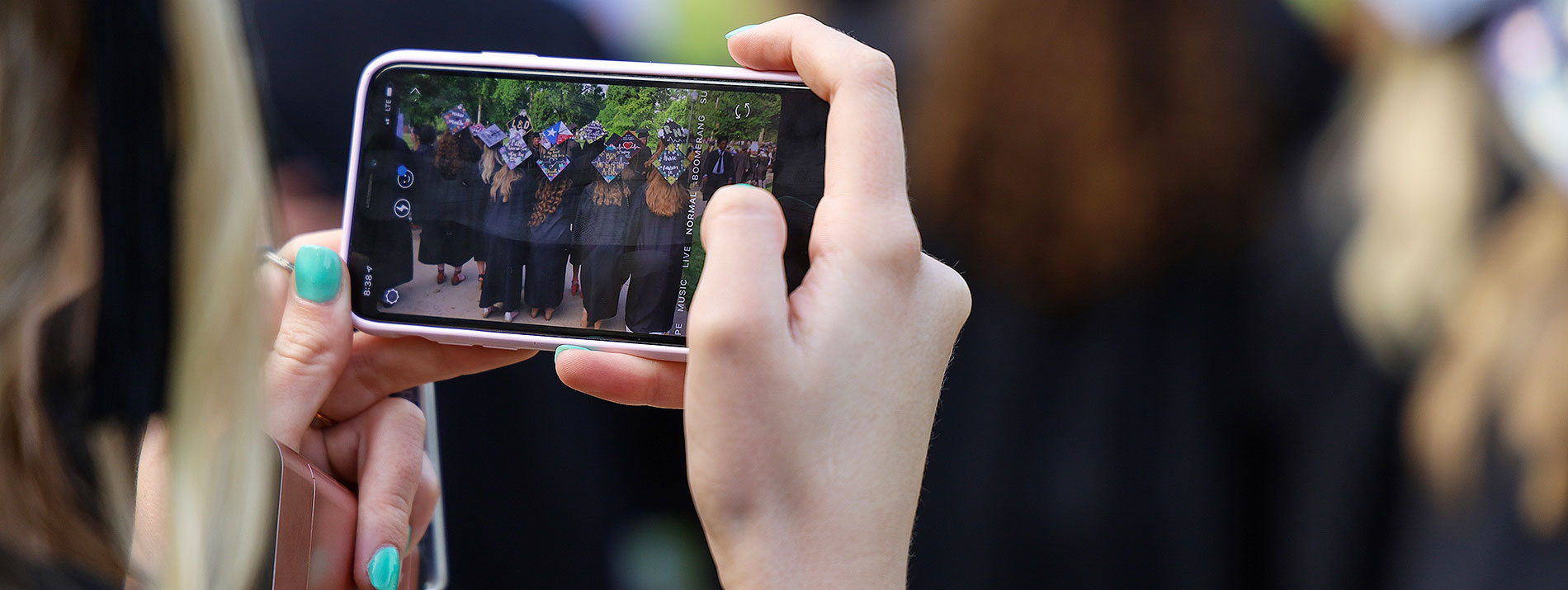Left Nav
Social media is a communications tool that can be used for many purposes. At Berry College, we typically use it to promote our brand and disseminate important information. Other uses include highlighting student and faculty achievements, promoting campus events and activities, and engaging with prospective students, alumni and other members of the Berry community.
You can find current department and organizational accounts at the Berry Social Media Directory.
We’ve laid out our current guidelines for creating and operating a Berry College-affiliated social media account below. If any questions arise please contact Hannah Stuart in the Office of Marketing and Communication.
Notes about the Berry Identity and Style
The Berry identity must be consistent in presentation across all channels. Specifically, the crestmark/logo is not to be altered. Most often in social the stacked crestmark is the logo that will be used. See page 18 of the branding document for any further questions or reach out to the Office of Marketing and Communication with graphics needs.
GUIDELINES FOR SETTING UP A DEPARTMENTAL SOCIAL ACCOUNT
Before you decide to create a new account, consider the following questions:
- Is a new channel necessary? Could an existing channel work sufficiently to achieve the desired goals?
- Would a group on Facebook be a better idea than a departmental page or another platform?
- Do I have the time and resources to commit to a social media account?
To set up a new social media account:
- Contact Hannah Stuart via email (hstuart@berry.edu) in the Office of Digital Marketing and Media after doing the following:
- Write out your mission and purpose statements and include those with the email.
- Designate a Fac/staff administrator for each account and include contact information.
- Include desired platform(s) and suggested handle(s).
The following security precautions are required:
- Each department or organization social media account at Berry should have a fac/staff administrator over the account so that Berry doesn’t lose access.
- For Facebook, remove students who have graduated. For other platforms, when students who have access graduate, change the account passwords.
General recommendations
- Commit to monitoring your social accounts daily—you want to know what’s going on with your audience.
- Post engaging content. What engaging means for your account depends on your audience.
- Post consistently—this could be every day, every other day, etc., but stick to it.
- Don’t post simply to post—though posting consistently is important, remember that you don’t always have to enter a conversation or post something simply to be posting. Sometimes it’s better not to post at all.
- Engage with your audience via likes/comments—part of creating a community is cultivating that sense of connection and conversation!
- PROOFREAD before posting, including fact-checking—and if someone corrects you about their personal information (say a name is spelled wrong etc), say thank you and make the edit.
- Do not publish confidential or false information.
- Monitor analytics to track growth and adjust your strategy accordingly—you’d be amazed what information you can glean from the numbers, including posting times and types of content. Hannah Stuart will be happy to help if you have questions.
- Make content accessible to all audiences. This includes providing alternative text descriptions for all images, providing captions for all videos and using camel case (capitalizing each individual word) in hashtags. Also limit emoji usage in posts, and keep emojis and hashtags at the end of posts when possible.
- Support other Berry pages and accounts (follow, share, like!)
DEALING WITH NEGATIVE COMMENTS AND TROLLS
We welcome open conversation with all connected to or wanting to learn more about Berry and want to ensure all conversations remain open, yet respectful. In the majority of cases, we try not to delete posts. When possible, hide posts or comments. Hiding leaves the comment available for the person who wrote it and friends to see, but no one else; deleting removes it entirely and may cause a more negative reaction than not acknowledging the comment at all.
Please keep in mind the following best practices.
Types of posts that may be deleted:
- Hate speech
- Vulgar language
- Sexually crude remarks
- Personal attacks of any sort
- Comments that may endanger the health or safety of others
- Spam comments (persistently off-topic, promoting commercial sites or products, political comments, etc. that have no relevance to the post topic)
For repeated offenders, accounts may be blocked or banned after a warning
You should not arbitrarily censor or delete comments. Reference the reasons above for deleting or banning, and consider responding to answer the commenter’s question or to clarify the original post. Often the community will regulate a negative comment or post by sharing their own experiences.
ALGORITHM INFORMATION:
- Focus on video
- Create shareable content
- Focus on community building through interaction with followers
- Create quality content that resonates with your audience
- Read more here: https://sproutsocial.com/insights/facebook-algorithm/
- Share short-form video content—algorithm prioritizes Reels
- Publish stories consistently (if this works for your brand)
- Share high-quality photos
- Learn what plays well with your followers and apply it
- Write captions that encourage engagement—questions that may prompt discussion, etc.
- Read more here: https://sproutsocial.com/insights/instagram-algorithm/
- Use photos and videos with your text content
- Don’t tell the whole story—keep it short and lead followers to click
- Pay attention to what content performs best
- Read more here: https://sproutsocial.com/insights/twitter-algorithm/
For more information on audiences and demographics, the folks at PEW have put together an excellent fact sheet: https://www.pewresearch.org/internet/fact-sheet/social-media/
